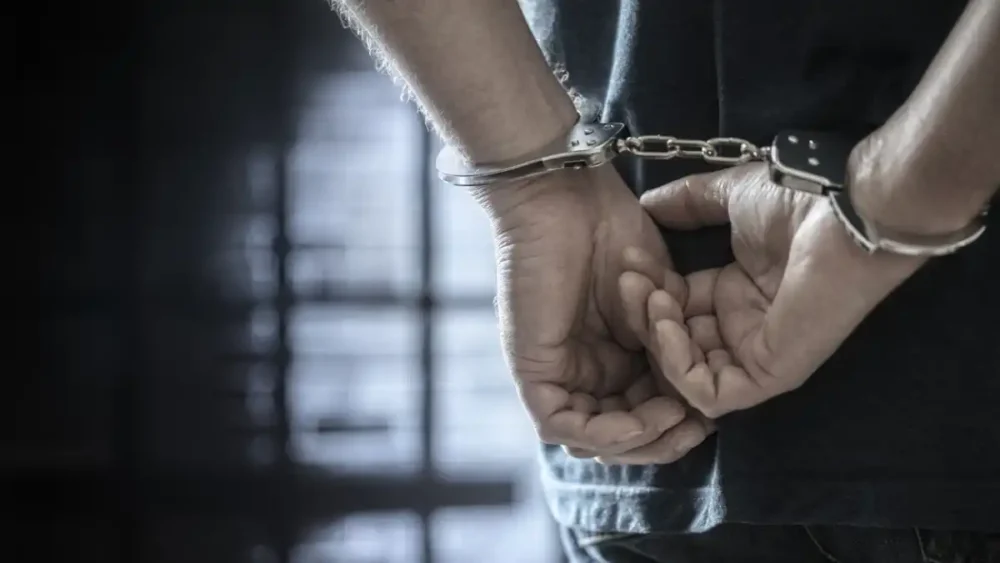Do you know somebody who was recently detained by law enforcement? Being taken into police custody, whether for yourself or a loved one, is terrifying.
Depending on the circumstances, being arrested might indicate several different things. Custody by the police is not the same as being arrested. When taken into custody by the police, an individual is nevertheless afforded some protections under the law. Police custody also requires disclosing facts that led to the detention or arrest. Discuss your case with an experienced lawyer at Lento Law Firm.
The Right to a Confrontational Interrogation

Source: hoganeickhoff.com
When you or a loved one are taken into police custody, it is imperative that you understand your rights immediately. Arresting officers are required by law to read the suspect their rights before arrest. These are known as “Miranda rights” while someone is in police custody.
The right to remain silent (Miranda) is a constitutional guarantee for those who are in police custody. For this reason, law enforcement officers inform suspects that their behavior and remarks may be used against them in court.
When someone is arrested, they must be informed of their Miranda rights. Illegal detention occurs whenever an arrested person is not given a copy of their rights.
When You’re Arrested, Do You Get Taken to Jail?
In a word, “no.” Getting taken into police custody is not the same as going to jail. For the purposes of the inquiry or temporary incarceration for lesser offenses, police custody is required.
In Philadelphia, as in the rest of America, a person can only be sent to prison after being found guilty of a crime. A conviction follows a court’s judgment. A criminal conviction is not guaranteed to occur after an arrest, even if there is a judicial judgment against the suspect.
Legal representation is essential if you or a loved one has been arrested on criminal charges.
The Elements of Police Custody
The following conditions must be met for an arrest to be valid:
- Hearing Your Legal Options
- Before making an arrest, the law requires that the suspect be informed his or her Miranda rights. It is your legal right to retain counsel for a criminal defense case.
Your Arrest’s Probable Cause Explanation

Source: shrm.org
The authorities have a responsibility to explain the nature of your detention. The law prohibits arbitrarily making an arrest. If they catch you in the act of committing a crime, only then, can they make an immediate arrest.
Person’s Detention
The arrest is the initial step that sets in motion a series of subsequent processes that are necessary to complete the investigation. However, there are two possible scenarios that could lead to the arrest being carried out:
At the location of a possible criminal act, when the police have gathered sufficient evidence to have reasonable grounds for suspecting that a criminal act has been committed, firsthand evidence is collected.
With a warrant to arrest, which has been signed by a judge or magistrate, and which has been carried out by the police in a different location and time from when the alleged offence took place
Booking
After being taken into custody by the police in Philadelphia, you will be transported to one of the police stations located around the city at this point. Each of these stations may be found in their respective police districts, while the headquarters can be found at 750 Race Street.
During the booking procedure, the police will collect fundamental information on you, such as who you are and what you are suspected of doing. Additionally, they will prepare for any future logistical work that may be required. In order to accomplish this, you will need to collect the following information:
- What is your name?
- Your address
- Your birthday, if you don’t mind sharing.
- Documenting the most fundamental aspects of one’s physical make-up
- Taking your photo
- Taking your fingerprints and a few other measurements
Using this information, the police will do a criminal record check on you to determine whether or not there are active warrants out for your arrest and whether or not you are a suspect in another crime, including one that took place in another state.
The officers who arrested you will give statements to the police, and those statements will be recorded. These statements will provide an overview of the circumstances surrounding your arrest, providing only the most fundamental and preliminary details. In addition, you will be subjected to a search, and anything of value that you have on your person, including your wallet, keys, and mobile phone, will be taken from you, put into storage, and returned to you once you have been released.
Bail

Source: stoprecidivism.org
After an individual has been taken into custody, the next step is to determine their bail conditions. A bail payment is a refundable payment you can make to the police and judicial system. In cases involving felony charges, a system is in place to ensure that you will appear at your initial court date arraignment and preliminary hearing.
The bail commissioner in Philadelphia is responsible for determining the amount of bail, and he or she may choose to do so either by consulting a predetermined bail schedule or by arriving at a number based on the following criteria:
- Your previous record in criminal offences
- The seriousness of the offence that you are being accused of doing.
- The danger associated with your flight
In the event that you are unable to make the required amount for bail, you will be required to remain in jail while the legal process pertaining to your case is carried out. If you post bond, you will be allowed to continue living your life while your case is being processed, but if you skip a court date, you will be required to pay back the amount of money that you posted.
Bail commissioners may agree to release you on your own recognisance if your case is not particularly serious, which is a sworn statement that you will attend future court dates to avoid being arrested again. In other cases, the bail commissioner may decide to keep you in custody.




